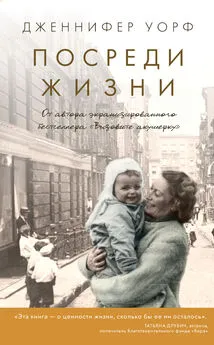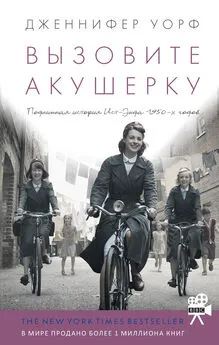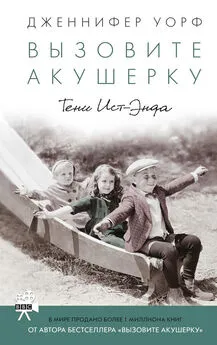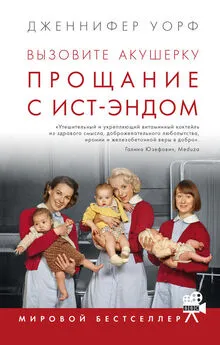Дженнифер Уорф - Посреди жизни
- Название:Посреди жизни
- Автор:
- Жанр:
- Издательство:Литагент Лайвбук
- Год:2021
- Город:Москва
- ISBN:978-5-907056-72-5
- Рейтинг:
- Избранное:Добавить в избранное
-
Отзывы:
-
Ваша оценка:
Дженнифер Уорф - Посреди жизни краткое содержание
«Посреди жизни» – воспоминания Уорф о работе с пациентами, чье время неумолимо подходит к концу. Это невероятные по силе эмоций, полные любви, сострадания и жажды жизни истории о самой Дженнифер, о людях, за которыми она ухаживала, и об их близких. Многолетний опыт и точные наблюдения Уорф – ценный источник знаний о медицине того времени и удивительная возможность задуматься о самом важном в своей жизни и жизни близких людей. В формате PDF A4 сохранён издательский дизайн.
Посреди жизни - читать онлайн бесплатно ознакомительный отрывок
Интервал:
Закладка:
Printz L. A. Terminal dehydration: a compassionate treatment // Archives of Internal Medicine, 1992, 152, p. 697–700.
Regnard C., Kindlen M. Supportive and Palliative Care: An Introduction. Oxford: Radcliffe Medical Press, 2002 // Cited in Bass M. Palliative Care Resuscitation. Chichester: John Wiley and Sons, 2006.
Rousseau P. The ethical validity and clinical experience of palliative medicine // Mayo Clinical Proctology, 2000, 75, p. 1064–1069 / In: Rousseau P. Ethical and legal issues in palliative care // Palliative Care, 2001, 28 (2), p. 391–399.
Дополнительная литература и информация
Bass M. Palliative Care Resuscitation. John Wiley and Sons, 2006. Книга для профессионалов, пациентов и их близких об этических и юридических вопросах реанимации при неизлечимом заболевании.
Kitwood T. and Bredin K. Person to Person: Guide to the Care of Those with Failing Mental Powers. Gale Centre Publications, 1992. Очень хорошее руководство, но несколько устаревшее, так как оно было написано до вступления в силу Закона о дееспособности.
Walsh D. Dementia Care Training Manual for Staff Working in Nursing and Residential Settings. Jessica Kingsley Publishers, 2006.
Nuland S. B. How We Die. Chatto & Windus; Vintage Books, 1993.
Yalom I. Staring at the Sun: Overcoming the Terror of Death. Piatkus Books, 2008.
Ellershaw J. et al. How to Have a Good Death (based on the BBC documentary by Esther Rantzen) / Ed. D. Beckerman. Dorling Kindersley.
Costello J. Caring for Someone with a Long-Term Illness. Manchester University Press, 2009.
Neuberger J. Caring for Dying People of Different Faiths. Radcliffe Publishing Ltd.
Neuberger J. Dying Well: A Guide to Enabling a Good Death. Published by Radcliffe Publishing Ltd., 2004.
Ku # bler-Ross E. and Kessler D. On Grief and Grieving: Finding the Meaning of Grief Through the Five Stages of Loss. Simon & Schuster, 2005.
Ku # bler-Ross E. (introduction by A. Kellehear) On Death and Dying: What the Dying Have to Teach Doctors, Nurses, Clergy and Their Own Families. Routledge, 2009.
Oral Feeding Difficulties and Dilemmas: a guide to practical care, particularly towards the end of life. A report of the working party under the chairmanship of Dr Rodney Burnham. Royal College of Physicians; British Society of Gastroenterology, 2010.
Их список длинен, но они могут быть особенно полезны специалистам в области здравоохранения и социального обеспечения.
Ballinger D. Is it ever acceptable to deceive a patient? // Nursing Times, 1997, 93 (35), p. 44–45.
Bass M. Oncology nurses’ perceptions of their goals in the resuscitation status of oncology patients // Professional Nurse, 2003, 18 (12), p. 710–713.
Bass M. Resuscitation: knowing whether it is right or wrong // European Journal of Palliative Care, 2008, 15 (4), p. 175–178.
Bass M. Should patients who are at the end of life be offered resuscitation? // Nursing Times, 2009, 105 (3), p. 19.
Bass M. CPR decisions in palliative care should allow for a good death // Nursing Times, 2009, 105 (15), p. 11.
Bass M. Advance Care Planning for the end of life // Oncology and Palliative Care, 2009, 3 (2), p. 42–43.
Billings J. A. Comfort measures for the terminally ill: is dehydration painful? // Journal of the American Geriatric Society, 1985, 33, p. 808–810.
Birtwhistle J., Nielson A. Do not resuscitate: an ethical dilemma for the decision-maker // British Journal of Nursing, 1998, 7 (9), p. 543–549.
British Medical Association. Withholding and Withdrawing Life-prolonging Treatments: Good Practice in Decision-making. London: BMA, 2002. Available to download from: www.gmc-uk.org .
British Medical Association, Royal College of Nursing, and Resuscitation Council (UK). Decisions relating to cardio-pulmonary resuscitation. A joint statement from the BMA, RCN and RC, 2001. www.resus.org.uk .
Burge F. Dehydration symptoms of palliative care patients // Journal of Pain and Symptom Management, 1993, 8, p. 454–64.
Clark D. Between hope and acceptance: the medicalisation of dying // British Medical Journal, 2002, 324, p. 905–907.
Conroy S. P., Luxton T., Dingwall R., Harwood R. H., Gladman J. R. F. Cardiopulmonary resuscitation in continuing care settings: time for a rethink? // British Medical Journal, 2006, 332, p. 47–482.
Cooley C. Communication skills in palliative care // Professional Nurse, 2000, 15 (9), p. 603–605.
Craig G. M. On withholding nutrition and hydration in the terminally ill: has palliative medicine gone too far? // Journal of Medical Ethics, 1994, 20, p. 139–143.
Dallain L. Cardiopulmonary resuscitation in the hospice setting // Cancer Nursing Practice, 2004, 3 (9), p. 35–39.
Dean J. A. The resuscitation status of a patient: a constant dilemma // British Journal of Nursing, 2001, 10 (8), p. 537–543.
Diem S. J. et al. Cardiopulmonary resuscitation on television // New England Journal of Medicine, 1996, 334 (24), p. 1578–1582.
Dimond B. Not for resuscitation instructions: the law for adult patients in the UK // British Journal of Nursing, 2004, 13 (16), p. 984–986.
Ebrahim S. DNR decisions: flogging dead horses or a dignified death? // British Medical Journal, 2000, 320 (7243), p. 1155–1156.
Ellershaw J. E., Sutcliffe J. M., Saunders C. M. Dehydration and the dying patient // Journal of Pain and Symptom Management, 1995, 10 (3), p. 192–197.
Ewer M. S., Kish S. K., Martin C. G., Price K. J., Feeley T. W. Characteristics of cardiac arrest in cancer patients as a predictor after CPR // Cancer, 2001, 92, p. 1905–1912.
Field D. Palliative medicine and the medicalisation of death // European Journal of Cancer Care, 1994, 3, p. 58–62.
Firth S. Wider horizons: care of the dying in a multicultural society. London: National Council for Palliative Care, 2001.
Fleming K. The meaning of hope to palliative care cancer patients // International Journal of Palliative Nursing, 1997, 3 (1), p. 14–18.
George A. L., Folk B. P., Crecilius P. L., Campbell P. L. Pre-arrest morbidity and other correlates of survival after in-hospital CPR // American Journal of Medicine, 1989, 87, p. 28–34.
Goss R. (Letters) Do not resuscitate orders: without discussion these orders are unethical at any age // British Medical Journal, 2001, 322 (7278), p. 105.
Hayward M. Cardiopulmonary resuscitation: are practitioners being realistic? // British Journal of Nursing, 1999, 8 (12), p. 810–814.
Herth K. Fostering hope in terminally ill people // Journal of Advanced Nursing, 1990, 15, p. 1250–1259.
Jevon P. Do not resuscitate orders: the issues // Nursing Standard, 1999, 13 (40), p. 45–46.
Kouwenhoven W. B., Knickerbocker G. G., Jude M. D., James R. Closed chest cardiac massage // Journal of the American Medical Association, 1960, 173 (10), p. 1064–1067.
Low J. S., Payne S. The good and bad death perceptions of health professionals working in palliative care // European Journal of Cancer Care, 1996, 5, p. 237–241.
McNeil C. A good death (editorial) // Journal of Palliative Care, 1998, 14: 1, p. 5–6.
Mayo T. W. Forgoing artificial nutrition and hydration: legal and ethical considerations // Nutrition in Clinical Practice, 1996, 11, p. 254–264.
National Council for Palliative Care. Ethical decisionmaking in palliative care: artificial hydration for people who are terminally ill. London: NCPC, 2002.
National Council for Palliative Care. CPR: Policies in action: proceedings of a seminar to inform best practice with CPR policies within palliative care. London: NCPC, 2003.
Regnard C., Mannix K. Reduced hydration and feeding in advanced disease – a flow diagram // Palliative Medicine, 1991, 5, p. 161–164.
Rousseau P. Ethical and legal issues in palliative care // Palliative Care, 2001, 28 (2), p. 391–399.
Safar P. On the history of modern resuscitation // Critical Care Medicine, 1996, Feb 24 (2nd supplement), p. 3–11.
Sweet S. J., Norman I. J. The nurse-doctor relationship: a selective literature review // Journal of Advanced Nursing, 1995, 22, p. 240–241.
Thomas A. Patient autonomy and cancer treatment decisions // International Journal of Palliative Medicine, 1997, 3 (6), p. 317–323.
Tschudin V. Ethics in Nursing, Ed. 2. Oxford: Butterworth-Heinemann, 1992.
Vitelli C., Cooper K., Rogatko A., Brennan M. Cardiopulmonary resuscitation and the patient with cancer // Journal of Clinical Oncology, 1991, 9 (1), p. 111–115.
Willard C. The nurse’s role as patient advocate: obligation or imposition? // Journal of Advanced Nursing, 1996, 24, p. 60–66.
Willard C. Cardiopulmonary resuscitation for palliative care patients: a discussion of ethical issues // Palliative Medicine, 2000, 14, p. 308–312.
Woodrow P. Nurse advocacy: is it in the patient’s best interests? // British Journal of Nursing, 1997, 6 (4), p. 225–229.
Younger S. J. Who defines futility? // Journal of the American Medical Association, 1988, 260, p. 2094–2095.
Деменция, с сайта NHS Choices. Информация о болезни и короткий видеоролик о жизни с деменцией. http://www.nhs.uk/conditions/dementia/Pages/Introduction.aspx
Сайт Общества помощи при болезни Альцгеймера: информация о различных видах деменции и о том, где можно получить помощь. http://alzheimers.org.uk/site/scripts/home_info.php?homepageID=29
Также информация на сайте BBC Health: http://www.bbc.co.uk/health/conditions/mental_health/disorders_dementia.shtml.
Полезная брошюра Британского общества психиатров: http://www.rcpsych.ac.uk/default.aspx?page=i42y
Сайт Cancer Research UK: информация о различных видах рака и о существующих исследовательских проектах: http://www.cancerresearchuk.org/
На сайте Macmillan Cancer Support есть много информации о раке, его лечении и жизни после лечения. http://www.macmillan.org.uk/Home.aspx
Для профессионалов: Macmillan имеет очень информативный образовательный сайт, доступ к которому можно получить по приведенной здесь ссылке. Это бесплатно, но нужна регистрация. http://learnzone.macmillan.org.uk/
Читать дальшеИнтервал:
Закладка:










